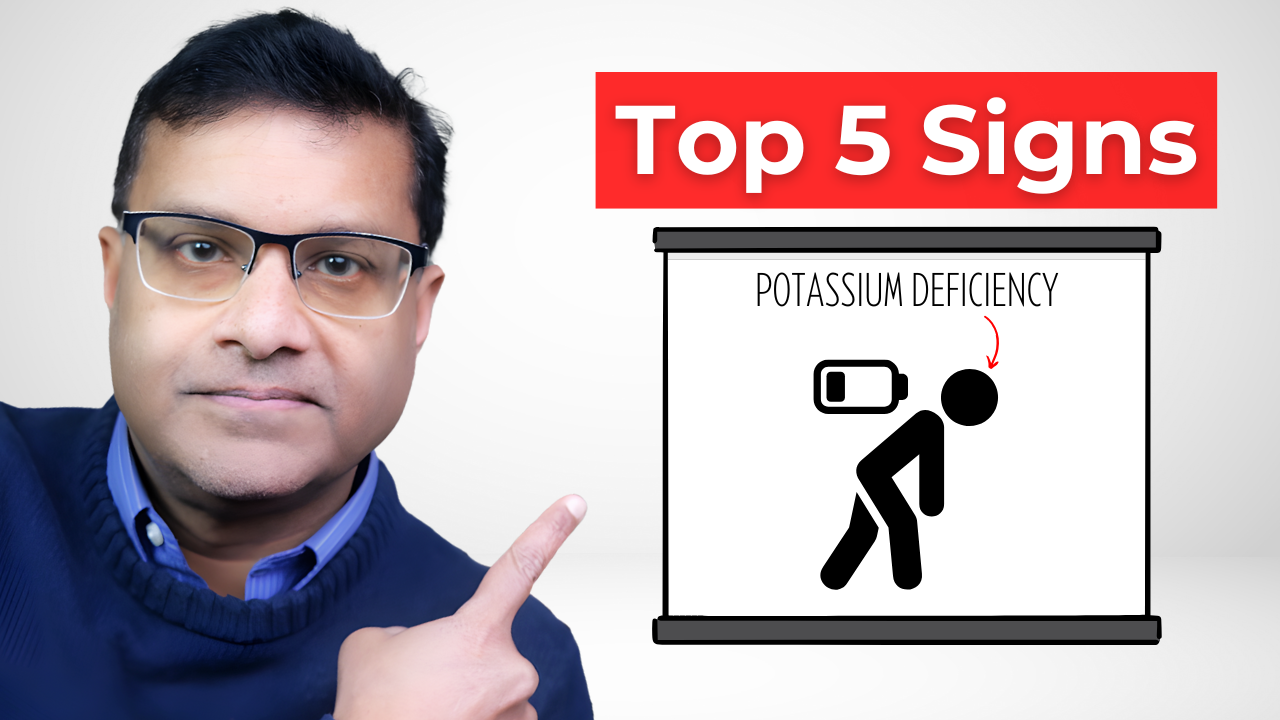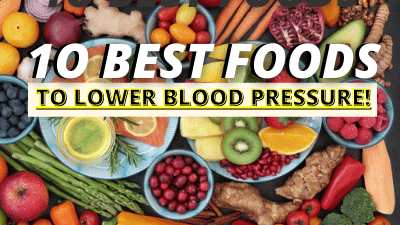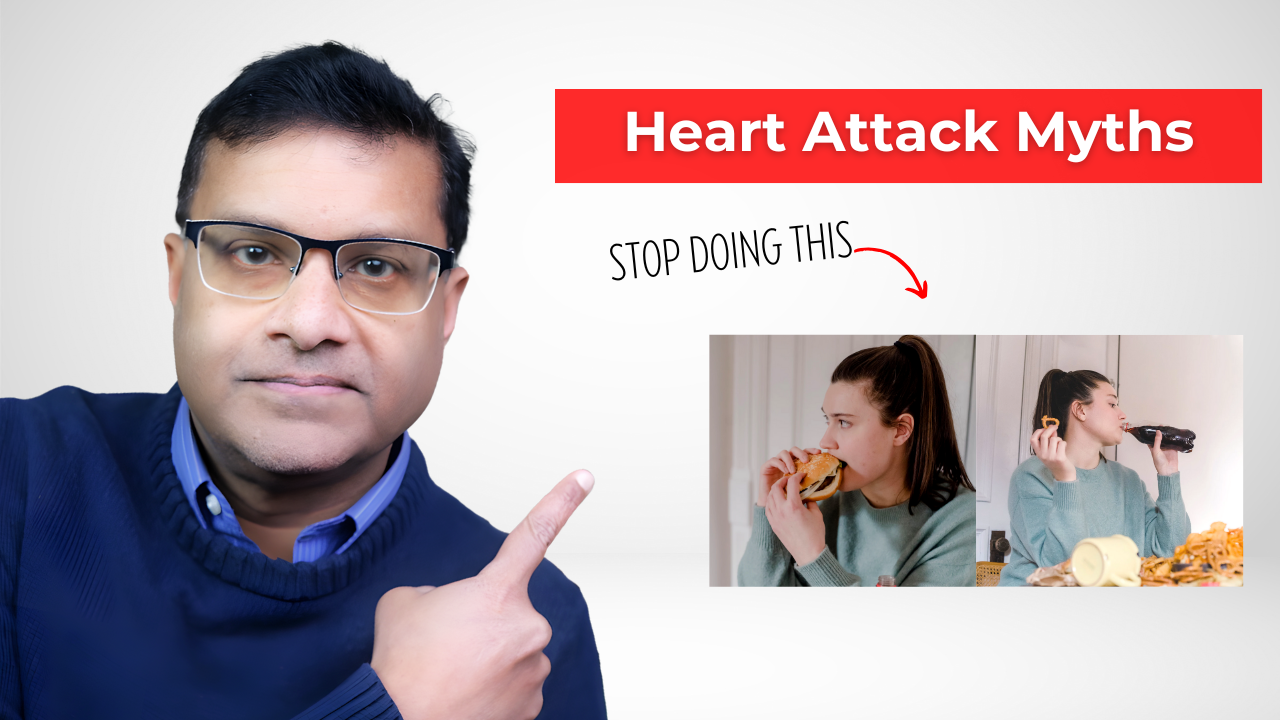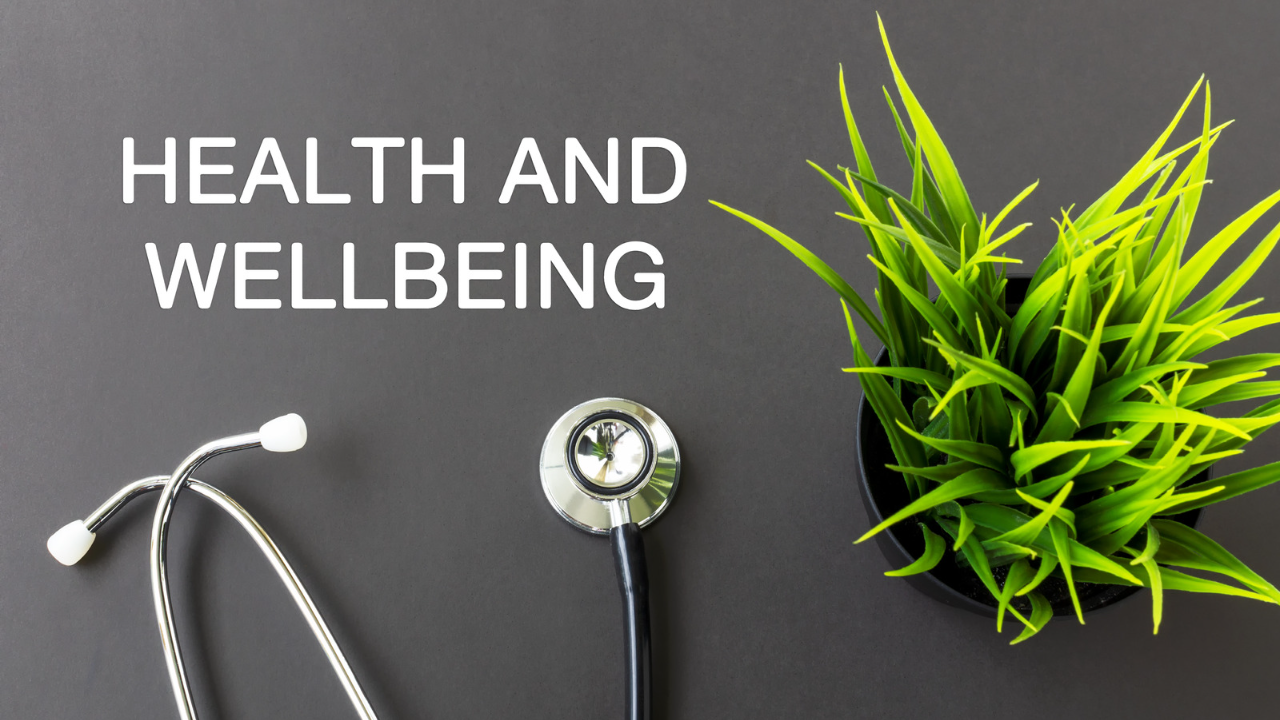Are you feeling tired all the time, dealing with muscle cramps, or experiencing high blood pressure?
These might not just be random symptoms—they could actually be signs of potassium deficiency!
This article will look at the top 5 signs of potassium deficiency and what you can do about it! Coming up.
What Is Potassium and Why Do We Need It?
Potassium is a mineral and an electrolyte, which means it’s essential for conducting electrical signals in your body. Think of it as your body’s secret weapon for keeping everything balanced. It works closely with sodium to control the fluids in your cells and helps your muscles, nerves, and heart function properly. Potassium ensures your muscles can contract and relax without cramping up.
The human body needs around 3,500 to 4,700 milligrams of potassium every day—that’s roughly the amount you’d get from eating 5-7 bananas! But here’s the problem: most people don’t get enough, and this can lead to a range of health issues.
The Warning Signs of Potassium Deficiency (Hypokalemia)
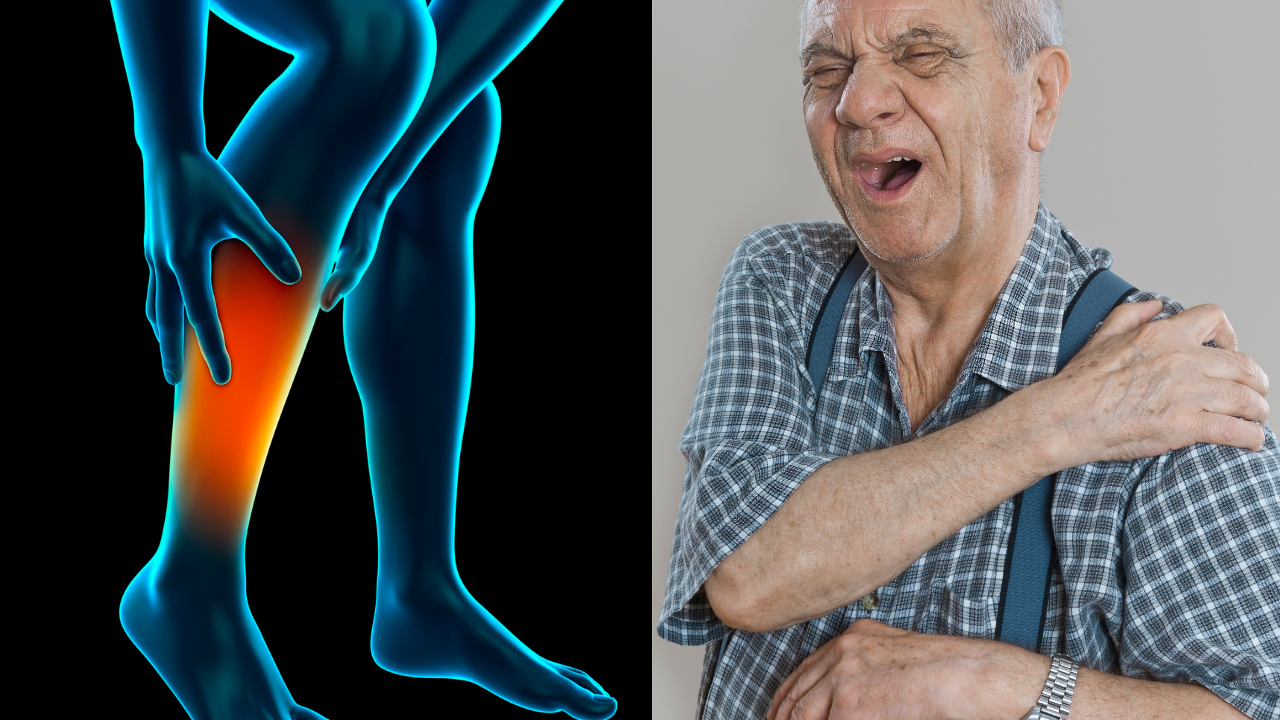
Let’s dive into the key signs that you might be low on potassium:
1.Muscle Cramps and Spasms
You’re sitting on the couch or trying to fall asleep, and suddenly—bam!—a sharp cramp in your calf makes you wake up. This is one of the first signs of low potassium. Potassium helps your muscles relax after they contract, so without it, your muscles stay tense and you may have painful cramps.
Imagine you’ve just finished a workout and you’re stretching your calves, expecting relief. Instead, you feel a tight, painful cramp as if your muscle is tied in a knot. That’s your body’s way of screaming for more potassium.
2.Constant Fatigue
Are you struggling to keep your eyes open by mid-morning, even after a full night’s sleep?
Low potassium might be to blame. Potassium is crucial for generating electrical signals in your body’s cells. Without enough of it, your cells can’t produce the energy you need, making you feel sluggish and exhausted all day.
Picture this: It’s 2 PM, and you’re fighting the urge to take a nap, even though you’ve had three cups of coffee. That kind of deep, unshakeable fatigue might be due to potassium deficiency.
3.High Blood Pressure
-
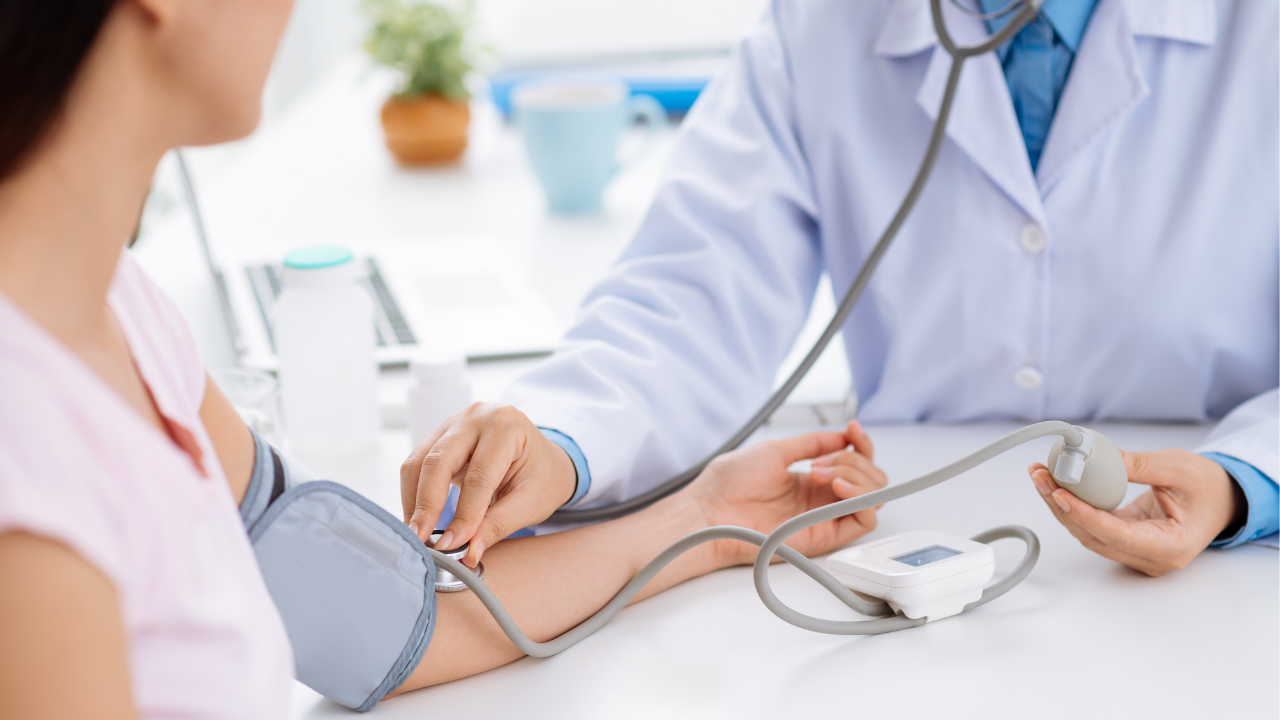
high blood pressure
Here’s a big one: potassium helps balance sodium levels in your body. When you don’t get enough potassium, the sodium from your diet can take over, causing your blood pressure to spike. High blood pressure, or hypertension, is often called the “silent killer” because it usually doesn’t show symptoms until it’s too late.
If you’ve been told to cut back on salt, try increasing your potassium intake, too. Eating foods like bananas, avocados, and spinach can help lower your blood pressure naturally.
4.Heart Palpitations and Irregular Heartbeat
Have you ever felt like your heart was pounding or skipping a beat, even when you’re just sitting still? This could be more than anxiety—it might be a sign of potassium deficiency. Potassium helps regulate your heartbeat by stabilizing the electrical signals in your heart. Without it, those signals can go haywire, causing palpitations or an irregular heartbeat.
5.Digestive Problems
-
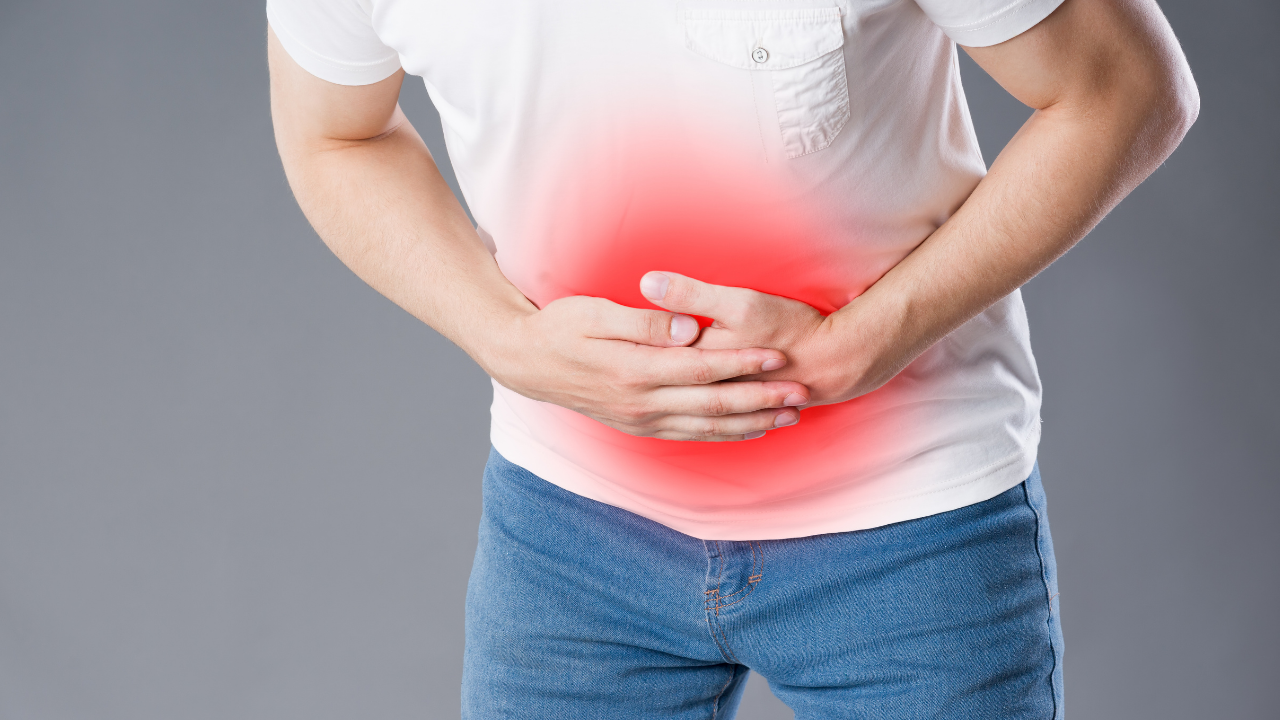
stomach pain
Did you know potassium also plays a role in your digestion? It helps the muscles in your digestive tract move food through your gut. When potassium levels are low, this process slows down, leading to bloating, constipation, and general discomfort.
Think about this: You’ve had a big, satisfying meal, but instead of feeling good, you’re left bloated and backed up. It might be because your body doesn’t have enough potassium to keep things moving smoothly.
Why Are You Potassium Deficient?
Let’s talk about why your potassium levels might be low in the first place. Here are the most common causes:
1.Poor Diet
If your diet mainly consists of fast food, chips, and processed snacks, you’re likely missing out on fresh, potassium-rich foods like fruits and vegetables. The typical Western diet is high in sodium and low in potassium—a recipe for deficiency.
2.Excessive Sweating and Intense Exercise
When you sweat, you lose electrolytes, including potassium. If you’re someone who works out a lot or spends a lot of time in the heat, you need to replenish these losses to avoid muscle cramping and fatigue.
Tip: Try drinking coconut water after a workout. It’s naturally rich in potassium and can help rehydrate you faster than plain water.
3.Certain Medications and Health Conditions
Medications like diuretics(like Lasix or HCTZ), often prescribed for high blood pressure, can cause your body to flush out potassium through urine. Health conditions like chronic kidney disease can also affect your potassium levels.
4.High Stress Levels
-
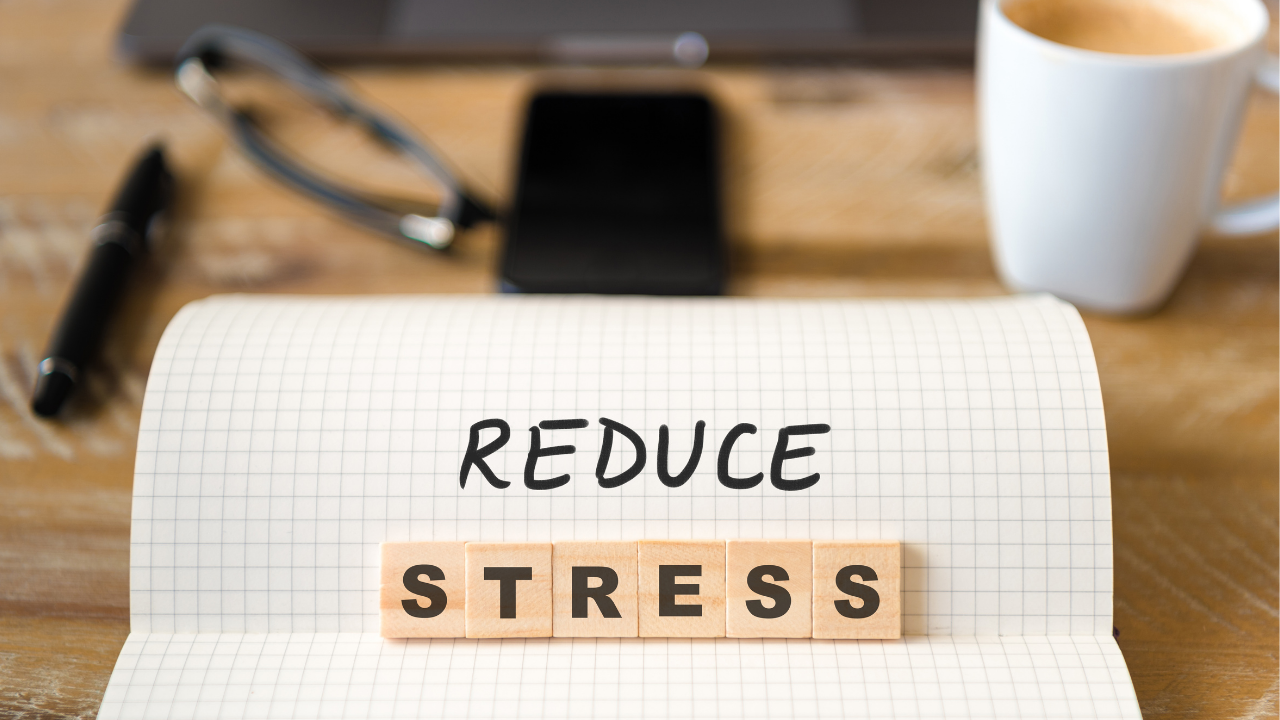
Stress reduction
Stress doesn’t just affect your mind—it impacts your body, too. When you’re stressed, your body releases cortisol, a hormone that can lead to increased potassium loss. Managing stress is crucial for maintaining your overall health, including your electrolyte balance.
How to Boost Your Potassium Levels Naturally?
Now that you know the signs and causes, let’s look at how you can boost your potassium levels naturally:
1.Add Potassium-Rich Foods to Your Diet Load up on foods like bananas, oranges, spinach, tomatoes, and yogurt.
2.Stay Hydrated Drink plenty of water to help balance your electrolytes. Dehydration can worsen potassium deficiency symptoms, so aim for at least 8 glasses of water a day.
3.Cut Back on Salt Reducing your sodium intake can help your body absorb potassium more effectively. Try swapping out salty snacks for fresh fruit or unsalted nuts.
4.Consider Supplements (With Caution) If you’re really struggling to get enough potassium from your diet, you might consider a supplement. But be careful—too much potassium can be dangerous, especially if you have certain medical conditions. Always check with a healthcare provider first.
And if you want to learn more about potassium, click on this video here !
Sources:
Is potassium good for high blood pressure? (Benefits of potassium!)
Lower Your Blood Pressure Naturally: Top 5 Foods for a Healthier Heart!



